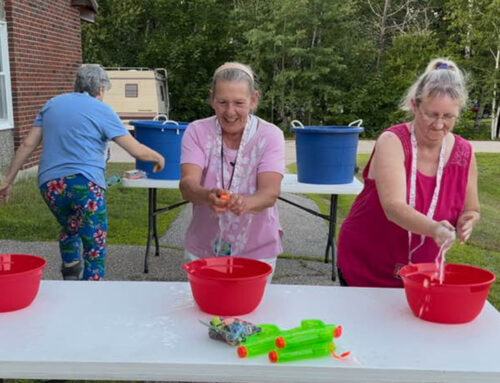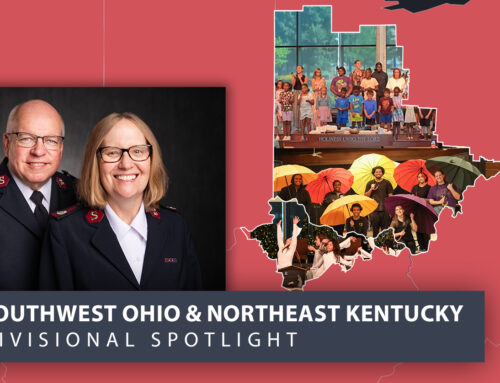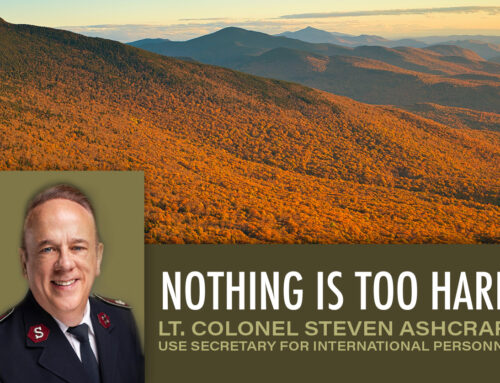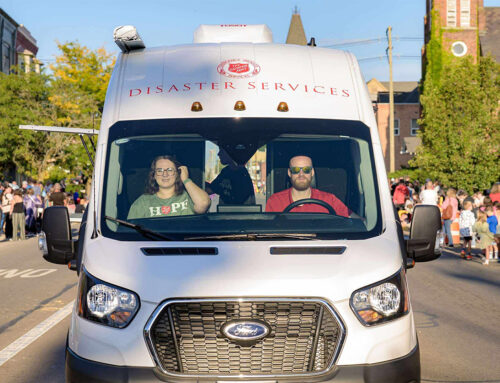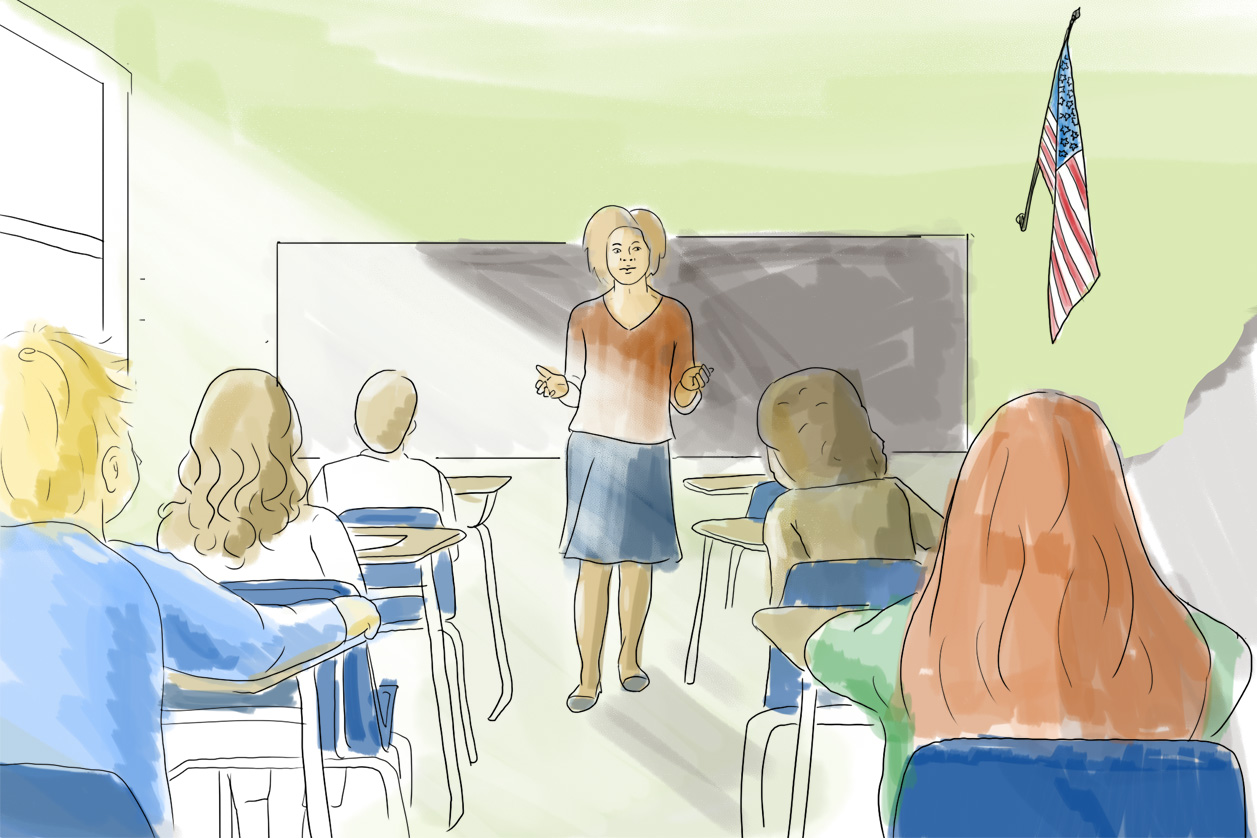
9/11 from the Classroom
by Hugo Bravo
Most Americans saw the events of September 11, 2001, through breaking television news reports or social media, a concept still in its early stages at the time. Children and young people experienced 9/11 surrounded by their classmates and teachers, days into the new school year. Few people might have been aware of the motivations that foreign terrorists would have to launch such an attack; even fewer could imagine how we would recover from it. No one will forget where they were or how they felt, including the officers and members of The Salvation Army.
A changed world
Captain Nereus Mogaria, now a corps officer of the Salvation Army Brooklyn Brownsville Corps Community Center in Greater New York, noticed dark smoky clouds from the window in his fifth grade classroom.
“My classmates and I were all confused when our teacher walked into the classroom crying,” says Mogaria. “She explained that the twin towers had been attacked, and for every student to start gathering their things. Our parents would be here soon to pick us up.”
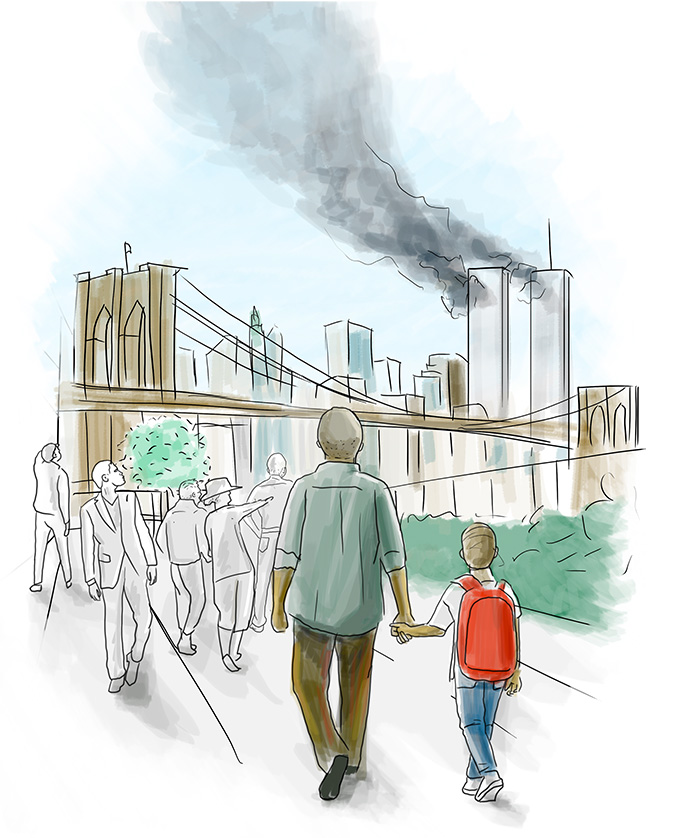 Mogaria remembers his father staying quiet as they walked home together. Before trying to figure out what was going on, he wanted to make sure his family was together and safe.
Mogaria remembers his father staying quiet as they walked home together. Before trying to figure out what was going on, he wanted to make sure his family was together and safe.
“Though I didn’t see it at the time, I’m sure my dad was worried about the possible negative backlash of being wrongfully blamed for the day’s events, because we were minorities,” he says.
At home, Nereus’ parents sat their children down to help them understand what had happened. They watched the day’s news on the TV stations that were still available. Some local channels had gone inactive from the towers being down.
“September 11 was also my grandmother’s birthday, but we didn’t even take the time to celebrate because of our fear of what was happening,” says Mogaria. “That day, the whole world changed.”
Faces of the WTC
“The World Trade Centers in NYC have just been hit.”
Larry Fulmer was a 13-year-old student at Broadway Middle School in Elmira, N.Y., when he heard those words over the classroom speaker. Two weeks earlier, Larry had been on the observation deck on top of the south tower. He remembered the faces of the staff working there.
Did they go in to work today? thought Larry. And if they did, are they alive?
Later that day, Larry’s mother came to pick him up from school. They talked about Larry’s uncle, who worked as a pharmaceutical salesman in Manhattan, and wondered if he had been near the towers. Hours later, they learned he was safe.
Today, Captain Larry Fulmer, Divisional Youth Secretary in The Salvation Army Western Pennsylvania Division, says the memory of the experience is still as clear as it was 24 years ago.
“I remember how that day made me feel at such a young age, and I still remember those faces I saw working at the WTC.”
Service at Ground Zero
Laura Crowell’s ninth grade English classroom in Berwick, Pa., was one of the few in the school that had a TV with cable access.
“My teacher, classmates, and I sat and watched in disbelief. I honestly don’t remember what happened the rest of the day,” says Crowell. “It’s a blurred memory now.”
Laura’s father was then-Lieutenant (later Captain) Adam Hench, who was pastor of the Berwick, Pa., Corps at the time. He deployed with an Emergency Disaster Services crew to ground zero. Laura’s mother, then-Lieutenant (now Major) Tammy Hench, stayed behind to continue running the corps.
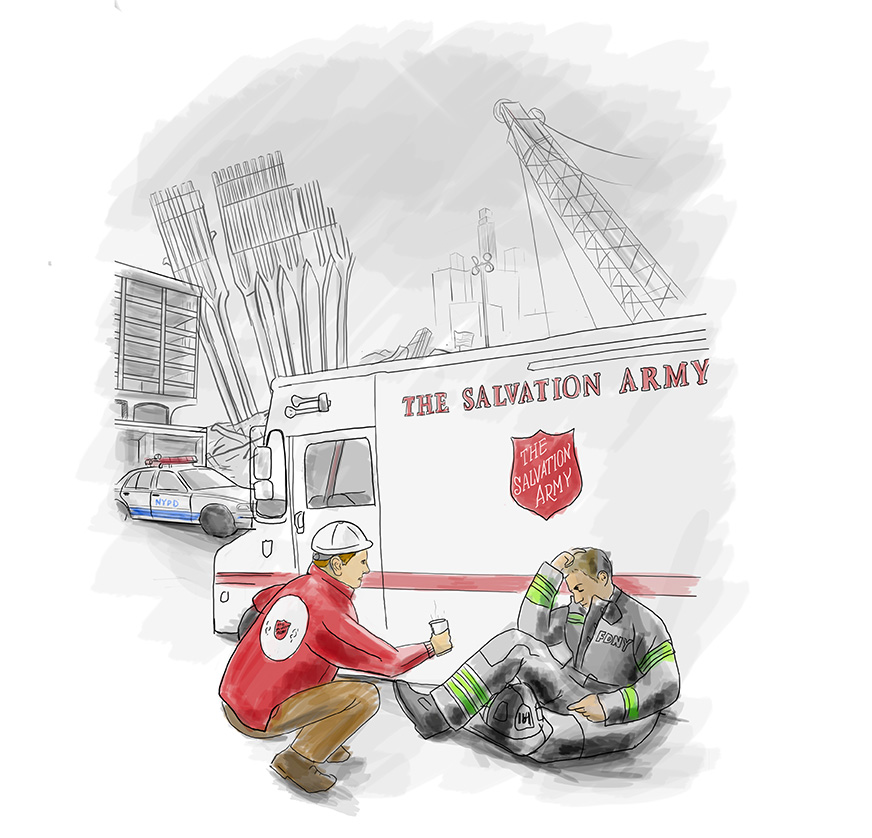 “Berwick’s programs continued in my dad’s absence. My mom always had volunteers show up to keep the corps running. Family and friends stayed with us to help care for me and my younger sister or run errands to help my mom. The advisory board and Rotary Club donated funds and supplies,” says Laura.
“Berwick’s programs continued in my dad’s absence. My mom always had volunteers show up to keep the corps running. Family and friends stayed with us to help care for me and my younger sister or run errands to help my mom. The advisory board and Rotary Club donated funds and supplies,” says Laura.
When Lieutenant Adam returned, he and Lieutenant Tammy shared their testimonies, thanking the community for helping meet so many needs in his absence. The spirit of serving others wasn’t present only at ground zero but also at Salvation Army corps like Berwick and across the Eastern Territory, with members of the community stepping up to help in any way they could.
After his time at ground zero, Captain Adam Hench, who was promoted to Glory in 2013, had a different perspective on life and ministry, recalls Laura.
“He cried over what he had seen and the stories of loss he had heard,” she says. “From then on, he lived his own life a little more fully. He knew that it can all change so quickly, as it did on 9/11.”

